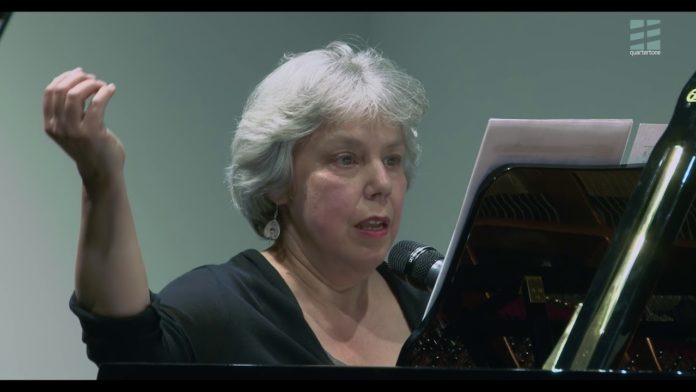By Artsvi Bakhchinyan
Special to the Mirror-Spectator
YEREVAN/BRUSSELS — Dear Laurence, let’s start our conversation with your father. Before knowing you, I read much about Arpag Mekhitarian, the eminent Egyptologist, who was also involved in Armenian art research and was active in community life in Belgium.
My father was born in Egypt in 1911 and died in Belgium in 2004. His own parents were born in Anatolia: my grandfather, Digran Mekhitarian (1875-1922) was born in Tokat and died in Egypt; my grandmother, Repega Djigamian was born in Marzevan (1896-1945) and died in Egypt at the end of the Second World War. After the death of my grandfather, the family came to Belgium in 1925, I think (mother Repega and the three boys, Arpag, my father, Bared who died earlier, and Mekhitar who died in 2013). My father met my mother, Aimée Briggen, in Switzerland in 1954, and she came just afterward to Belgium to marry him.
I would like to talk about my own experience and how I got in touch with Armenian culture little by little. Even my father never spoke in our family in the Armenian language during our childhood; however, we were regularly in contact with the Armenian community in Belgium. My parents had good Armenian friends and I remember our visits to them and the pleasure taken by my father from talking in the Armenian language, including, of course, with my uncle Mekhitar, his brother. They were always talking in their mother language when they were together.
We had at home a lot of books on Armenian culture and my father wrote also some books on Armenian art, especially on medieval miniatures. I remember also that my father, even though he was not a believer, took me to the church at Christmas and Easter because of his position in the Armenian community (and mostly also because he found the liturgy so beautiful). At that time we did not have an Armenian church in Belgium but there was a liturgy [conducted] twice a year in Brussels. This constitutes for me very deep and moving memories. We were going to some other meetings in our Hay Doun (Armenian House) in Brussels.










